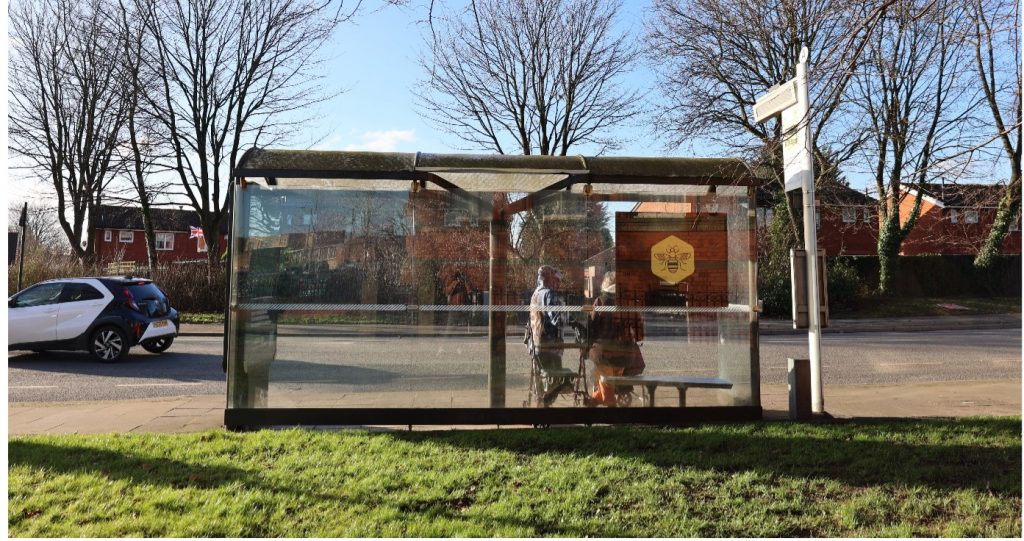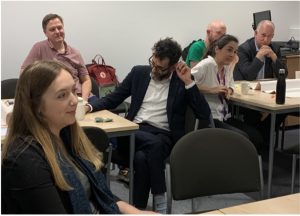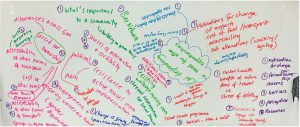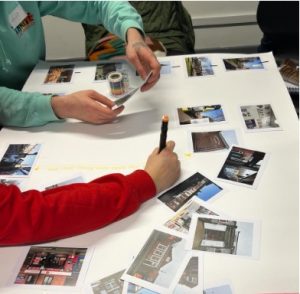
Tackling poverty in times of increased austerity
Economic austerity has deepened and widened across the UK due largely to the ever-rising cost of living and the wider effects of Brexit, the pandemic recovery, political instability and the pressure of overseas conflicts. Many more individuals and households have been plunged into poverty in recent years and low-income neighbourhoods also face significant financial challenges from severe local spending cutbacks. In response to the ongoing ‘crisis’, Professors Karen Lucas and Sarah Marie Hall have hosted a series of workshops, public engagement exercises and policy events to raise awareness of the lived experiences of ‘Transport Poverty and Economic Austerity’.
Public panel discussion
 The first event, open to the public, brought together a panel of policy makers, civil society activists and academics. Opening statements from the panel set the stage for an honest discussion about the difficulties in accessing transportation in Greater Manchester. The socio-economic implications of rising travel costs and the challenges of relying on a public transport provision that struggles to meet the needs of its users, highlighted the need for continued reform. There was a call for decision making around transportation provision to do more than be economically profitable and instead to more heavily weight the mobility needs and benefits of the people who rely on public transport to connect with their everyday lives.
The first event, open to the public, brought together a panel of policy makers, civil society activists and academics. Opening statements from the panel set the stage for an honest discussion about the difficulties in accessing transportation in Greater Manchester. The socio-economic implications of rising travel costs and the challenges of relying on a public transport provision that struggles to meet the needs of its users, highlighted the need for continued reform. There was a call for decision making around transportation provision to do more than be economically profitable and instead to more heavily weight the mobility needs and benefits of the people who rely on public transport to connect with their everyday lives.
Practitioner workshop
The second event, a workshop designed to bring together people working within the Greater Manchester transport policy sector with university researchers and key stakeholders from local organisation representing people experiencing transport poverty to:
- Highlight the problems of local transport austerity and identify some ‘quick wins’ to address these.
- Share knowledge and facilitate joined up working between the different participant organisations.
- Develop a mid- and long-term action plan for tackling transport austerity in low-income neighbourhoods.
Attendees brainstormed four main themes: i) how to value schemes to show their social worth; ii) real opportunities to meet people’s real needs; iii) car dependency; and iv) the need for other opportunities and ways of working. They then discussed what actions could be taken immediately, in the interim, and what would make a difference to transport provision for poorly served individuals and communities in the long term.

Transport Austerity Working Group (TAWG)
Participants at the workshop identified actions they could execute individually straightaway that would make a positive impact. It was agreed that we should keep the momentum generated across the two events by forming a working group, ‘Transport Austerity Working Group’ to facilitate ongoing collaboration that would lead to action.
Transport and social inclusion pilot projects in Wigan and Oldham
 We have undertaken some research with local communities in collaboration with Transport for the North, Transport for Greater Manchester and Wigan and Oldham district councils (TAWG partners). The aim is to develop a blueprint for the implementation of neighbourhood level transport plans in coproduction with residents and other local stakeholders, with a specific focus on the travel needs of people who are living in poverty or experience other social disadvantages.
We have undertaken some research with local communities in collaboration with Transport for the North, Transport for Greater Manchester and Wigan and Oldham district councils (TAWG partners). The aim is to develop a blueprint for the implementation of neighbourhood level transport plans in coproduction with residents and other local stakeholders, with a specific focus on the travel needs of people who are living in poverty or experience other social disadvantages.
Acknowledgements
We would like to thank the panellists for their participation, to the Mechanics Institute for hosting the panel discussion in their historical premises, and to the ESR Festival of Social Sciences and the Manchester University Innovation Fund for their financial support. Most of all, we are grateful to the members of the public, Greater Manchester policy community and local non-governmental organisations who participated in these events and shared their experiences and perspectives.
Professor Karen Lucas is deputy director of the Manchester Urban Institute (MUI) and leads its Transport and Mobilities research theme. She is a world-leading expert on transport-related social exclusion and transport inequalities in the global north and south.
Professor Sarah Marie Hall is a pioneer of research in the area of everyday austerity at the intersection with gender and social justice with specific emphasis on everyday life and economic change, social reproduction, care, ethics and consumption, and feminist praxis. She also leads the MUI research theme on Urban Justice, Gender and Social Difference.

0 Comments